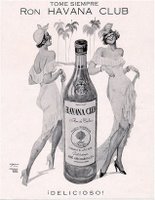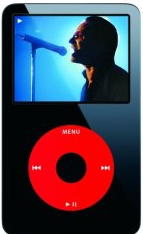
Intellectual Asset Management, since “Rembrandts in the Attic” and “Edison in the Boardroom,” has become big business. Accounting firms, law firms and consultants have descended on anyone with a patent portfolio, encouraging them to “monetize” their intellectual property asset by any means possible: licensing, sale and even giving the assets away to charity for the tax write-off. Companies as large as IBM have engaged in extensive licensing programs to try to wring the last penny out of the sometime gargantuan patent portfolios which had hitherto been gathering dust. Texas Instruments, in fact, took this a step further, cutting a well-known swath through the semiconductor industry in the mid-1990s aggressively litigating their portfolio,
For those companies with more modest ambitions – and who are willing and able to make their own decisions about how best to deploy their intellectual property assets, the question remains – what will be the competitive impact of launching, for example, a patent licensing campaign? Who should I be licensing to and why? Should I license everyone available or are there some companies I should not license to? Could the financial benefit I might receive from licensing my patents end up giving my competitors a club to beat me with? Or, might I gain a greater competitive advantage by licensing not one, but all of my competitors?
For most companies, licensing your core patents to a direct competitor simply to increase revenue is extremely dangerous and, in many cases, simply foolhardy. Jeff Weedman, VP of Proctor & Gamble, points out the competitive risks of this practice which, for some reason, P&G is willing to incur: “We will license to our competitors . . .. The fact that we´re going to license technology means that we´re no longer simply competing with the innovations of our competition, but we´re also competing with ourselves. This forces us to run faster and innovate faster to stay ahead.” Although this practice may work for P&G, deliberately allowing your competitors the right to use your core inventions so that they can gain a competitive advantage against you is an economic trade-off that most companies would regret in very short order.
A poorly drafted license to a competitor can pose even more serious dangers. Your competitor may end up sublicensing your patent to yet other companies – without compensating you – or may develop improvements to your invention, which it could then patent and use to threaten – or even sue – you.
And, just as a basic rule of business, it is often a poor idea to give your competitors access to the very thing that makes you distinct – your core intellectual property – simply to gain a short term bump in the bottom line. Apple has kept its distinctiveness by refusing to license the MAC operating system, for example. Although it has, perhaps, sacrificed licensing revenue, it has more than made up for it by being able to keep its own margins high. You will rarely, if ever, be able to charge enough for a license to substantially increase your competitor’s costs and you will devalue what makes your company special.
There are, however, unique circumstances under which licensing your patents to a competitor can work to your advantage: establishing or maintaining a monopoly and setting a technological standard.
As Sony learned with Betamax, sometimes being “special” does not work to your competitive advantage. No one disputed that the Betamax was technologically superior to the VHS format, but Sony, by refusing to share its intellectual property with its competitors, allowed them to set the standard for videotape formats and cost them dearly.
Indeed, the sharing of intellectual property – under the watchful eye of the antitrust regulators, of course – can often work to the advantage of the largest players in an industry, who usually dominate the standards-setting committees (through, for example, the IEEE) and license each other the patents to technologies they are already working on, to their mutual advantage – and to the disadvantage of their smaller rivals. Sometimes, as with the high definition TV wars, competing groups of competitors race to establish their own standards, hoping that their cabal will prevail.
Indeed, if you move fast enough, you may even be able to become the standard for your technological niche – a tactic successfully employed by RIM for its Blackberry technology (before it stepped into some quite different patent trouble).
The all time champion in using this latter strategy is, of course, Microsoft, who has leveraged the licensing of its software into a complete monopoly of most consumer applications software. Although Microsoft’s dominance of the operating system market is long standing, it is its practice of developing and licensing the use of its application software, such as Word and Excel for use on competing operating systems, such as Apple’s which is particular interesting. Although it might appear that it would not be to Microsoft’s competitive advantage to encourage the use of a competing operating system by allowing Mac users the ability to use these popular programs, what Microsoft has done is almost completely precluded anyone else from gaining a toehold, however, small, in the word processing market by developing a “Mac-based” word processing product – thus maintaining Microsoft’s monopoly in that market.
However, just because Microsoft may be able to use its dominance to counter the competitive disadvantages of licensing competitors doesn’t mean that you can, or should even try.
So, in short, it is not always a good idea to listen to the siren song of the consultants and lawyers who want you to license everything to everybody. Pick your licensees carefully and don’t sell your biggest rival a knife he will later use to stab you in the back.




.jpg)



